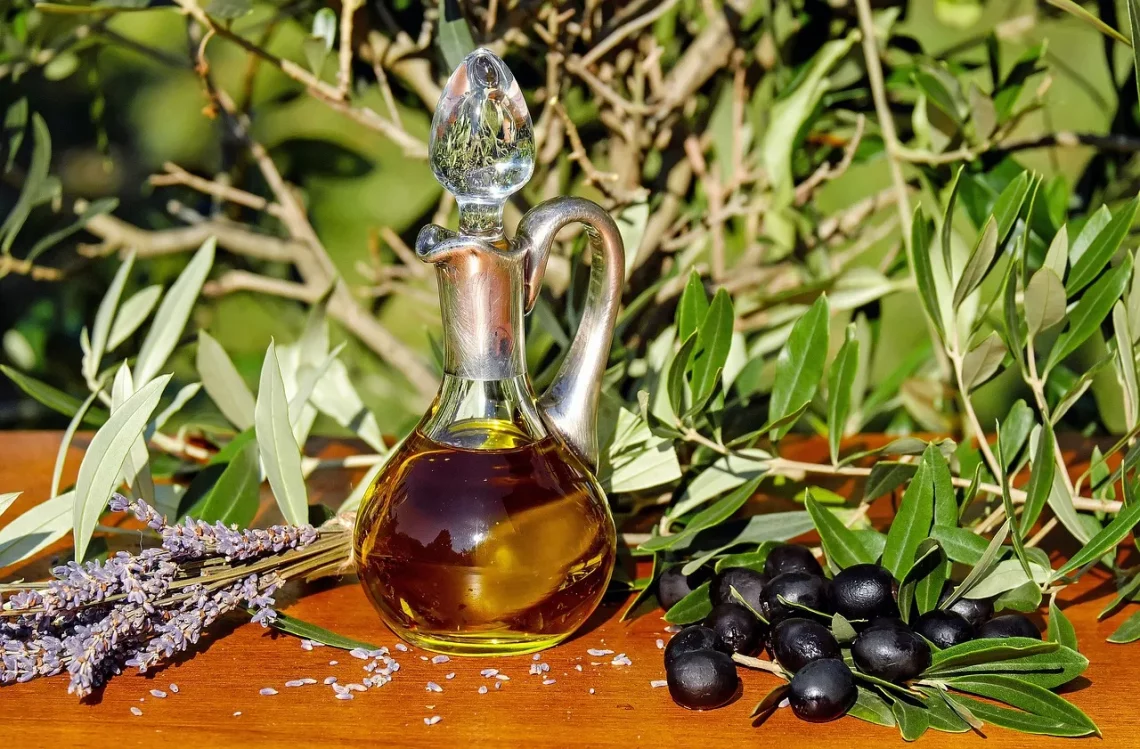
The Surprising Use of Vegetable Oil as a Personal Lubricant
The use of natural ingredients for personal care has gained significant attention in recent years, as more individuals seek alternatives to commercial products laden with synthetic chemicals. Among these natural substances, vegetable oils have emerged as versatile options for various applications, including skincare, haircare, and even personal lubricants. The appeal of vegetable oils lies in their accessibility, affordability, and the perception that they are safer for the body. This shift towards more holistic and organic solutions encourages many to explore unconventional uses for everyday items.
Vegetable oils, derived from plant sources, have been utilized for centuries in cooking and traditional medicine. Their properties often include moisturizing, anti-inflammatory, and antibacterial effects, making them appealing for personal care. However, the conversation around their use as lubricants in intimate settings is less explored. While the idea may initially raise eyebrows, many individuals are turning to these oils as a natural alternative to commercial lubricants, which can contain a long list of unfamiliar ingredients.
As this trend continues to grow, it is essential to understand the benefits, potential drawbacks, and considerations when using vegetable oil as a personal lubricant. This exploration not only expands the knowledge base around personal care but also highlights the importance of being aware of what we apply to our bodies.
Understanding Vegetable Oils
Vegetable oils are derived from various parts of plants, including seeds, nuts, and fruits. Common examples include olive oil, coconut oil, almond oil, and grapeseed oil. Each type of oil boasts unique properties, making them suitable for different uses, from cooking to skincare and beyond.
One of the most significant advantages of vegetable oils is their natural composition. Unlike many commercial products, which may contain synthetic additives, preservatives, and fragrances, vegetable oils are often minimally processed. This characteristic makes them an attractive option for individuals seeking a more natural approach to personal care.
In the realm of skincare, vegetable oils are celebrated for their moisturizing properties. They can penetrate the skin, providing hydration and nourishment without leaving a greasy residue. This quality is particularly advantageous when considering their use as lubricants, as they can enhance comfort and reduce friction during intimate activities.
Furthermore, many vegetable oils possess anti-inflammatory and soothing properties, which can be beneficial for individuals with sensitive skin. Oils like jojoba and avocado oil are known for their gentle nature, making them suitable for a wide range of skin types. This versatility is a crucial factor when selecting a lubricant, as personal preferences and sensitivities can vary greatly among individuals.
Additionally, vegetable oils are rich in vitamins and antioxidants, contributing to overall skin health. For example, vitamin E, commonly found in many oils, is renowned for its skin-repairing qualities. Using these oils as personal lubricants can thus provide added benefits beyond lubrication itself, promoting healthier skin in sensitive areas.
However, it’s essential to note that not all vegetable oils are created equal. Some oils may have a heavier consistency or a stronger scent, which could be off-putting for some users. Therefore, understanding the characteristics of each oil is vital for making an informed choice.
Benefits of Using Vegetable Oil as a Lubricant
The use of vegetable oils as personal lubricants comes with a myriad of benefits that can enhance the overall experience of intimacy. One of the primary advantages is their natural composition, which can provide peace of mind for those who are cautious about chemical exposure.
Unlike many commercial lubricants, which may contain artificial preservatives and additives, vegetable oils offer a more straightforward ingredient list. For individuals looking to avoid synthetic chemicals, this aspect is particularly appealing. The simplicity of vegetable oils allows users to feel more in control of what they are applying to their bodies.
Another significant benefit is the moisturizing effect these oils can have. Many commercial lubricants are water-based and can dry out quickly, requiring frequent reapplication. In contrast, vegetable oils tend to have a longer-lasting effect, providing sustained lubrication throughout intimate activities. This characteristic can lead to a more comfortable and enjoyable experience for both partners.
Additionally, vegetable oils can serve multiple purposes beyond lubrication. Many individuals find that these oils can double as massage oils, enhancing intimacy and connection between partners. The act of massage can increase relaxation and intimacy, making vegetable oils a versatile addition to one’s personal care routine.
Moreover, some vegetable oils have unique scents and flavors, which can add an element of fun and sensuality to intimate moments. For example, coconut oil has a tropical scent, while almond oil offers a sweet, nutty aroma. These sensory experiences can enhance the overall connection between partners and contribute to a more enjoyable atmosphere.
It’s also worth mentioning that vegetable oils are generally safe for use with latex condoms, although individuals should always check the compatibility of specific oils with their chosen contraceptives. While oil-based lubricants can degrade latex, some oils, such as coconut oil, are considered safe for use with certain types of condoms, making them a viable option for those looking for a natural lubricant.
However, as with any product, it’s crucial to conduct a patch test before widespread use, particularly for individuals with sensitive skin or allergies. This precaution can help prevent any adverse reactions and ensure a positive experience.
Potential Drawbacks and Considerations
While there are many benefits to using vegetable oils as personal lubricants, it’s essential to consider potential drawbacks and limitations as well. One of the primary concerns is the possibility of allergic reactions or skin sensitivities. Although vegetable oils are generally safe for most individuals, some may react negatively to specific oils, particularly those with nut-based oils.
Individuals with known allergies to nuts or certain plants should exercise caution and consider alternative options. Conducting a patch test on a small area of skin can help determine if an individual is prone to an adverse reaction before using the oil in more sensitive areas.
Another consideration is the potential for staining. Vegetable oils can leave behind greasy residues on sheets or clothing, which may be a concern for some users. Unlike water-based lubricants that wash out easily, removing oil stains can require more effort and care. This aspect is essential to keep in mind for those who prioritize cleanliness and convenience.
Additionally, while vegetable oils can be safe for use with certain types of condoms, they may not be compatible with all latex products. Oil-based lubricants can degrade latex, increasing the risk of breakage. As a result, individuals should always verify the compatibility of their chosen oil with their contraceptive methods to ensure safety during intimate activities.
Moreover, it’s important to recognize that not all vegetable oils have the same consistency or properties. Some oils may be too thick or heavy, leading to a less enjoyable experience. Users should experiment with different types of oils to find the one that best suits their needs and preferences.
Finally, while vegetable oils can provide numerous benefits, they should not be considered a substitute for medical advice or treatment. Individuals experiencing ongoing discomfort or other intimate health issues should consult a healthcare professional for guidance.
In conclusion, while vegetable oils can serve as effective personal lubricants, it’s crucial to approach their use with awareness and consideration of individual needs and circumstances.
**Disclaimer:** This article is for informational purposes only and does not constitute medical advice. For any health-related concerns, please consult a qualified healthcare professional.




